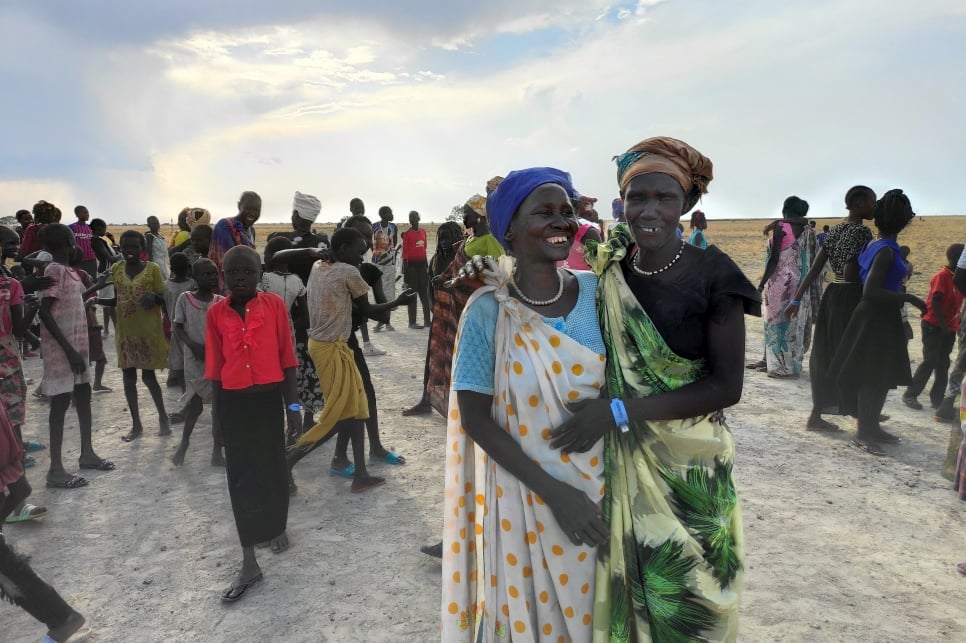This is a summary of what was said by Arafat Jamal UNHCR Representative in South Sudan and ad interim Deputy Special Representative of the Secretary-General, UN Resident and UN Humanitarian Coordinator - to whom quoted text may be attributed - at today's press briefing at the Palais des Nations in Geneva.
 A South Sudanese family previously displaced by violence returns home to Baliet, Malakal, in Upper Nile State. © UNHCR/Igor Latluk
A South Sudanese family previously displaced by violence returns home to Baliet, Malakal, in Upper Nile State. © UNHCR/Igor Latluk
UNHCR, the UN Refugee Agency, today joins millions of South Sudanese as they mark 10 years of independence. On 9 July 2011, South Sudan emerged from decades of violence and strife as the world's youngest nation.
Yet in these 10 years, there has been more war than peace.
Brutal conflict broke out in South Sudan in late 2013, undoing hard-won gains made since independence and ushering in a vicious cycle of inter-communal conflict and a dire humanitarian situation.
Over 2.2 million people were forced to flee to neighboring countries in the region, mainly in Ethiopia, Sudan, and Uganda. UNHCR's most recent report on displacement trends, released last month, placed South Sudan among the top five refugee producing countries globally
Another 1.6 million have been internally displaced within South Sudan and cut off from education, livelihood, and protection. The internal and refugee displacement make South Sudan the largest displacement crisis in Africa.
Some 7.2 million people or 60 percent of the country's population are estimated to be acutely food insecure, making the country one of the worst food and nutrition crises globally.
Yet, even with its challenges, South Sudan has opened its doors to generously host 320,000 refugees mainly from Sudan.
Over the past decade, the nation has lurched from hope to strife and back again.
Efforts to implement the national peace process have encouraged some 375,000 South Sudanese refugees to voluntarily return since November 2017. Another 1.6 million IDPs have also returned home.
While UNHCR is not promoting or facilitating refugee returns at this time, we are providing assistance to those that have chosen to return, to help them start afresh.
These are clear signs of people's belief that South Sudan can return to peace and stability. We, therefore, need to do more to reimagine and recommit efforts towards the country's peace, development, and future.
Urgent and strategic action from humanitarian agencies, development partners and peacebuilding actors is needed to help returnees and the communities in which they settle to live in safety and dignity, with greater security and prosperity.
We require financial resources to sustain current aid efforts, respond to future situational changes including supporting sustainable return as well as consolidate development gains. Our operation in South Sudan has received only 38 per cent of the US$224 million required this year. We need at least US$11 million specifically to operationalize and scale-up activities in return areas, including bolstering staff presence, strengthening border monitoring and the implementation of community-based projects.
Development efforts should also be strengthened to improve people's current living conditions and build future resilience. Enabling people to sustain themselves now, will not only allow them to give back to host communities, but support their eventual return and cement the path to peace.
We believe that areas to which IDPs and refugees are returning can represent pockets of hope, places where people are making peace, and where money spent is money invested in the future of South Sudan.






